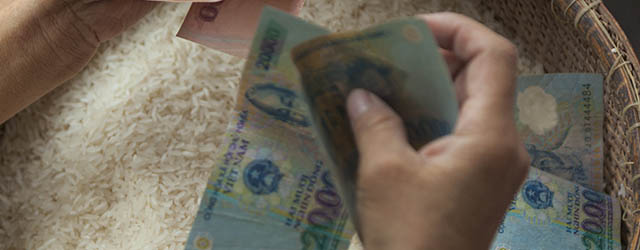In May, Vietnam’s central bank once again devalued the country’s currency, the dong—the second such adjustment since January.

The State Bank of Vietnam altered the band for the currency by 1%, to 21,673 per US dollar, in a move that has been portrayed in some quarters as an attempt by the government to boost exports. Peter Pham, managing director of investment and financial advisory firm Phoenix Capital in Ho Chi Minh City, is dubious. “I don’t think it will help boost exports,” he says, “despite having devalued the currency by 2% in 2015, when compared with devaluations from other countries—the 5.3% devaluation in Indonesia, 2.6% in Malaysia and 3% devaluation in Thailand.”
Analysts believe a more plausible explanation for the devaluation is that the central bank ran down its foreign reserves supporting the dong. Capital Economics, a macroeconomic research company, says December reserves were equivalent to just 2.4 months worth of imports, below the three-month threshold recommended by the IMF. Even so, Vietnam’s current account is now showing a healthy surplus in contrast to a deficit that reached 13.7% of GDP in 2008. Gareth Leather, Asia economist at Capital Economics, remains concerned about the pace at which toxic debts are being cleansed from the banking sector. “The government has been slow to recognize the scale of the problem and slow to put resources into place to recapitalize bad banks and merge weaker ones with smaller ones,” he explains.
Once considered the darling of frontier market investors, Vietnam is plagued by the residue of a banking crisis that brought the economy to its knees and exposed deeply entrenched corruption among state-owned enterprises. However, the economy is in better shape than it has been for some considerable time.
The International Monetary Fund forecasts real GDP will grow 6% this year, making Vietnam one of the fastest-growing economies in Southeast Asia. Vietnam’s exports continue to outpace those of the rest of the region. The country will continue to be a magnet for foreign investors seeking to capitalize on low labor costs.



